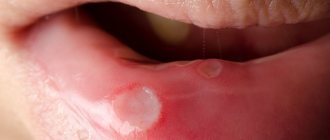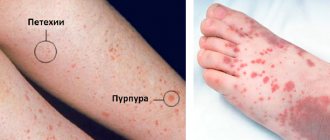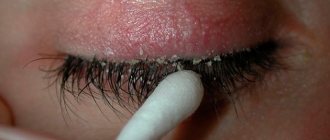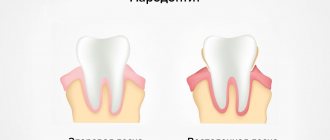Doctors Cost
Price list Doctors clinic
Dysbacteriosis is not a disease, but a condition characterized by a disruption of the intestinal microflora, while the number of beneficial microorganisms becomes smaller. It usually occurs in children from birth to three years of age, but can occur at any age.
It is important to understand that in the first few days after birth, the baby’s microflora is practically absent. During the first hours, the baby's sterile intestines are populated by the mother's intestinal and vaginal flora (during natural birth). The formation of microflora is facilitated by the first breastfeeding - biologically active substances, nutritional components, and beneficial bacteria enter the intestines. True dysbiosis is a condition observed 7 days after the baby is born.
Treatment of dysbiosis in children should be timely. In this way, it will be possible to prevent the undesirable consequences of microflora imbalance and eliminate unpleasant symptoms.
Let's talk about microbiota
The human body is home to a great variety of microorganisms: viruses, bacteria, fungi, protozoa. Each of them has their own role. They have been our integral neighbors for many centuries. Their number can exceed the number of cells in the human body itself. Microorganisms are everywhere: on the skin, in the mouth, on mucous membranes, in breast milk and even in the placenta. There are practically no sterile zones in our body. And each has its own profile of inhabitants. Most species are found on the skin and in the intestines.
However, in terms of microbial mass, the colon is ahead of everyone. It alone can contain up to one and a half to two kilograms of microbial bodies. They are actively involved in the process of digesting food and train the human immune system. It has been proven that the more diverse the microbiota, the more adapted the body is to various changes.
With the development of civilization and medicine, the number of representatives of the microworld has decreased significantly. The use of antibiotics, antiseptics, pesticides and other inventions of mankind has had a detrimental effect on nature and our health. We are losing the diversity of microorganisms, resulting in an increase in non-infectious chronic pathologies.
It is important!
In children suffering from allergic diseases, a small number of representatives of the microcosm and their meager diversity were noted. In children born surgically, colonization of the intestines by beneficial bacteria is slowed and delayed. These are the realities of our time.
The health of the children of the Southern Urals is our concern!
Dysbacteriosis has recently become a very common condition in children, especially in infants. It causes discomfort to babies, worsening their general condition and well-being, interferes with the child’s normal weight gain and causes a lot of worry to their parents. In addition, microflora plays an important role in human life. It regulates intestinal motility, supports and stimulates the immune system, synthesizes many vitamins, provides antiviral protection for the host, normalizes metabolic processes, helps absorb many trace elements and amino acids, helps cleanse the body of toxins and prevents the penetration of foreign microbes into the blood. In total, in the human body in the intestines there are 1.5 kilograms of beneficial microbes in dried form - this is a whole “organ”. Their activity and significance can be compared with the function of the two organs of the liver and kidneys combined! The head of the pediatric gastroenterology department of the Chelyabinsk Regional Children's Clinical Hospital, a doctor of the highest category, Vadim Zemlyakov, talks about the causes of dysbiosis and methods of combating it.
— Vadim Leonidovich, some doctors consider dysbiosis to be a disease. What is your opinion on this matter? — Dysbacteriosis is a condition that can develop due to various diseases or unfavorable environmental conditions of a person. Let me give you a simple example: you are sitting at a lecture or in a movie, and the amount of carbon dioxide in the air is stuffily increasing in the hall. In this situation, a state of dysbiosis gradually begins to develop. The boss scolded him at work, the person received a new portion of stress, intestinal motility increased, and the beginning of the development of a state of dysbiosis was laid. The normal intestinal flora, and not only the intestinal flora, but also the flora of all abdominal organs, is affected by: poor nutrition, poor ecology, climate change, various ionizing radiation that surrounds a person in everyday life, inflammatory diseases, and taking medications. But this is not a disease - it is a change in flora (temporary condition) depending on external conditions of influence. — Can dysbiosis occur only in the intestines or is all mucous membranes of the body susceptible to this? — Disturbed intestinal flora will have a negative effect on the mucous membrane of all abdominal organs in which it is present (oral cavity, esophagus, stomach, intestines, vagina, etc.). Here a chain of relationships appears: disease of the intestinal mucosa affects the state of the microflora, disturbed microflora affects the mucous membrane. — By what signs can parents determine that their child has a dysbacteriosis condition? — Parents should think about it if their child’s appetite decreases, the child is pale with bluish circles under the eyes and under the nose. If a child periodically experiences nausea, grumbling and abdominal pain, the stool changes, and there are greens or pieces of undigested food in the stool. The child does not gain weight well, spits up, and often begins to get colds. Perhaps in the evening, namely at seven o'clock, a low-grade fever is noted - 37.1-37.2. Provided that you hold the mercury glass (and not electronic) thermometer for exactly 10 minutes, this is very important. These signs may indicate diseases of the digestive system and, in particular, the condition of dysbiosis. — How much does the state of the intestinal flora affect the child’s immunity? — When a child’s intestinal microflora changes for the worse, immunity decreases. When a child develops frequent colds, this also indicates that the digestive organs do not allow one to have 100% immunity. After all, 98% of a person’s immunity depends on the state of the colon microflora. And when it is disrupted, immunity drops, which means frequent colds appear. — That is, if parents have a child who is often sick, they should think about visiting a gastroenterologist? - Like one of the moments. We know that many diseases: skin, teeth, mucous membranes, even bronchial asthma, are sometimes a complication of diseases of the digestive system. When people ask me questions like this, I immediately remember one incident: the entertainer comes on stage and says: “I have a headache today.” His partner replies: “You probably ate something wrong.” The audience in the hall laughs, but he said everything correctly. Headache can be a direct consequence of gastrointestinal problems. — How does a doctor determine whether a child has a dysbacteriosis condition? — There are various methods for studying microbial flora in humans. When assessing a stool test for dysbacteriosis, it is very important to take into account the patient’s age, the principles of his diet, the sowing period: how it was collected, and when the stool was donated. And without taking these factors into account, it is impossible to correctly evaluate the result obtained. Because the numbers will ultimately be different. Let me give you a simple example: if a patient consumes more fermented milk products, then he will have significantly less coli bacteria, but this does not mean that this is a disease. If he eats more meat, he will have more coli bacteria, less bifidum, and so on. Therefore, the analysis itself must be interpreted taking into account all these points. — When a child is tested, are all these factors examined in detail? - Of course not. — Then it turns out that it is impossible to accurately determine the presence of dysbacteriosis in a child? — Without taking these factors into account, it is impossible. Therefore, many parents, when they turn to us for help, are often surprised why we ask all the subtleties and details of nutrition, which, in principle, no one ever asks. Therefore, we differ positively both in terms of treatment, and in terms of diagnosis, and in terms of results. And that’s why there’s always a huge queue for us. — What methods of treating dysbiosis exist and is it necessary to treat it at all? - You definitely need to treat! It is necessary to begin treatment with the underlying disease that led to this condition or with the cause that led to it. Naturally, medications are initially prescribed that act directly on eliminating the underlying cause. Let’s assume that a child has gastritis, it is treated, and drugs are prescribed that improve the child’s intestinal microflora. If the child is in rooms where there are various household “emitting devices” (TV, computer, microwave oven, radiotelephone, etc.), then, accordingly, they must be used as rarely as possible. If medications are a factor leading to the disease (antibiotics, etc.), then, if possible, they should be replaced or eliminated completely. That is, it is first necessary to remove factors that negatively affect the normal intestinal flora of the child. And only after that, it becomes possible to restore it. - The doctor will be able to determine exactly why it is dysbiosis that has developed? - Most often, we see the reason. - Is there a way to prevent dysbiosis? - First of all, it is necessary to monitor the child’s health. It is imperative to adhere to the principles of a healthy diet. The child’s daily diet should contain plant fiber (vegetables, fruits, grains) porridge), which helps restore intestinal microflora. Naturally, the set should be complete: microelements, vitamins, enzymes. Plant foods should predominate in the diet; the child must consume fermented milk products and proteins, in the form of eggs, meat, chicken, and fish. This will help restore normal intestinal flora. — You can lead a healthy lifestyle, but it’s much more difficult to protect yourself from stress and radiation. What is the solution in this case? — The only thing is to get rid of the source of negativity. If, for example, you are stressed at work, then you need to change your place of work. And this is absolutely serious, because we only live once. Being under constant stress and being treated for illnesses is not the best solution to the problem. It just doesn't make sense. It’s not for nothing that the Japanese believe that you should change your job once every five years. And at each enterprise they have an unloading room in which there are models of bosses. If the boss offends you, you go into this room and use the stick there to hit this dummy. The boss whose dummy is destroyed faster than others is fired from the enterprise. This is the prevention of illness among employees and the struggle for higher productivity in the enterprise. — It turns out that it is also not rational to live in the Chelyabinsk region, where the ecology is not the best? — Of course, living near the Mediterranean Sea or in the mountains of Georgia is much more useful than living in the Chelyabinsk region. Let me give you a simple example: in 1991, through the Green Cross, we took children with gastroenterological pathologies to Karlovy Vary for recovery. I took with me a huge box of medicines in case of exacerbation of illnesses, because every child had a serious digestive disease. And after living there for 1.5 months, none of the children complained of feeling unwell. But as soon as we crossed Brest and went to a restaurant on the train, within exactly two days that we were traveling, all the medicines we had stored were used up. Children began to have health problems due to deteriorating quality of food, water and air. — What is the role of heredity in the development of gastrointestinal diseases? — Of course, the health of his parents plays a big role in the health of a child. They convey to him a predisposition to diseases of the digestive system. If the mother is unhealthy, then the quality of her breast milk will be low, which is the next factor not in favor of the baby. — During breastfeeding, should the mother follow a special diet or diet? — Nutrition should be complete and varied. If the mother has gastrointestinal diseases, medications that improve her condition can be prescribed for preventive purposes. The mother herself should draw the attention of the gynecologist to this, because her state of health at the time of the birth of the child plays a big role in shaping the health of the baby. In particular, how complete the composition of his intestinal microflora will be. After all, the colonization of normal microbes in the baby’s intestines occurs in the womb, starting at 26-28 weeks. — What foods are not recommended for children to eat? — There are five main unhealthy foods: carbonated drinks, mayonnaise, ketchup, chips and chewing gum. These are all products of genetic engineering. For example, long-term use of chewing gum leads to dementia (the presence of phenols in it). Moreover, it is coated with a harmful taste-forming substance. And its frequent use leads to disruption of the food reflex. And the next time you swallow food, your stomach will not be ready to digest it. — What foods are best not given until the age of three? — All products up to three years old must be natural, not canned! They can be used raw or cooked. Fried and smoked, pickled, chocolate, of course, are not allowed. Although recently we have to talk about bad habits in young children, when mothers start giving their babies a teaspoon of vodka at night so that they sleep better. And for the sake of appetite, children began to be given beer. This has been happening quite often lately. We receive young children with cirrhosis of the liver because the mother, while breastfeeding the child, drank alcoholic beverages and smoked. — How do you feel about the use of milk in children’s diets? “Given the fact that there are no ideally healthy children, drinking milk may not be beneficial for many of them. Milk can contribute to excessive growth of microflora, and sometimes the child’s body is not able to digest it (lactase deficiency). Therefore, we, gastroenterologists, are more in favor of consuming fermented milk products and cheeses. — If a child is forced to take antibiotics, what should be done as a preventive measure to prevent dysbiosis from developing? — It is best to combine antibiotics with a decoction of herbs, such as yarrow, plantain, chamomile or oregano. They reduce the negative effects of antibiotics on the intestinal mucosa and its microflora by 80%. — How common are diseases of the digestive system? — Diseases of the gastrointestinal tract in children are in second place after respiratory infections. And this is considering that a child suffers from ARVI 2-3 times a year, and the diagnosis of gastrointestinal disease is made once. — Do you treat children only from the region or from Chelyabinsk too? — CHODKB serves residents of the Chelyabinsk region, regardless of its territories, that is, Chelyabinsk is also included here. But given the fact that in Chelyabinsk there are a sufficient number of gastroenterological beds and specialists, diagnostics are also at a high level, we try to take only the most severe and complex cases from Chelyabinsk. And the last stage, if we are no longer able to provide assistance, the Institute of Pediatrics in Moscow takes care of patients. — How do children get to you? “They come on the referral of doctors from the region for a consultation at the regional children’s clinic with a gastroenterologist. After examining the child and conducting the necessary research, the doctor decides whether he needs to be hospitalized or treated on an outpatient basis. The second option for a patient to arrive at a regional children’s clinic or for hospitalization in a department is to be examined by a gastroenterologist at a “travel clinic.” This is when our specialists advise children at their place of residence.
Olga Melchakova, Uralpress news agency
Intestinal dysbiosis in a child. What is important to know?
It has been proven that the functioning of the brain, our desires, mood, motivation, sleep, appetite, stress resistance and even memory depend on how the intestines function. Mutual regulation of the gastrointestinal tract (gastrointestinal tract) and the central nervous system (central nervous system) occurs at different levels: endocrine, immune, cellular and humoral.
The intestinal microbiota is capable of producing a wide range of neurotransmitters (serotonin, catecholamines), immunomodulators (histamine, cytokines), hormones (cortisol, leptin) and other substances. Even components of their cell walls and intracellular structures can regulate the functioning of the genes of our cells.
Inflammatory processes and the quantitative growth of pathogenic microorganisms in the intestines contribute to the development of depression, anxiety and anxiety. Conversely, colonizing the intestines with friendly microorganisms improves cognitive activity and memory, and reduces anxiety.
About the importance of timely treatment
The intestinal microflora performs many important functions: it supports heat production in the body, regulates intestinal motility and ensures the absorption of nutrients, participates in the metabolic processes of proteins, fats, carbohydrates, and produces active substances. It also promotes detoxification processes and is involved in the regulation of the child’s behavioral reactions (appetite, sleep, mood). Therefore, it is important to pay attention to the typical symptoms of an imbalance of microorganisms and take timely measures. In the absence of corrective measures and treatment, dysbiosis can cause hypovitaminosis, behavioral disorders, the development of IBS (irritable bowel syndrome) and other consequences.
Causes of dysbiosis in children
Balance in the microcosm is a fragile and unstable state. It depends on external factors (highly infectious agents, antibiotics, etc.) and internal factors (the state of the human body). Interspecies struggle occurs constantly. Any infectious process is the dominance of one of the microbes. Either this is a newcomer who has conquered the human body, or an “old man” who has developed favorable conditions or new signs that have given him advantages. It is according to the second option that dysbacteriosis develops.
Balance is the ratio of different microbes in a certain place, at a certain age and at a certain time. Those. it is not permanent, it is not constant for all time. It changes with age and depends on gender, diet, national and cultural characteristics.
For our body, balance is the ratio of micro-inhabitants that contributes to the most comfortable, efficient and minimally costly functioning of the tissue, organ and the entire organism as a whole. Those who help in this are friendly to us, the rest are frankly harmful or conditionally pathogenic (can cause pathological processes when exposed to certain factors).
There is still a lot we don’t know about the microworld; we are only at the beginning of our journey. What is known for sure:
- There are infant and adult strains of bacteria;
- Bifidobacteria predominate in breast milk and in the intestines of children under one year of age;
- With the introduction of formulas and complementary feeding products in children under one year old, the ratio of microorganisms in the intestines changes;
- By the age of 3-5 years, a microbial profile (enterotype) is formed, which is difficult to change over the years.
Prevention of dysbacteriosis
The following measures help reduce the likelihood of developing dysbiosis:
- skin-to-skin contact immediately after birth;
- rational nutrition of the child - ideally breastfeeding and no supplementary feeding before the due date;
- washing hands before eating.
"SM-Doctor" is a modern medical center with wide diagnostic and therapeutic capabilities. We follow the example of leading clinics in Europe and the world and do everything necessary to improve the baby’s well-being in the shortest possible time. Contact professionals at a convenient time!
Provoking factors for the development of dysbiosis
The most common factor in imbalance is previous infections, and not only intestinal ones.
Otherwise, we ourselves very successfully destroy it or initially set the wrong vector for the formation of relationships with microorganisms through our actions: by excessively actively using antibiotics
- early transfer to artificial feeding
- often resorting to surgical delivery.
- Stress, increased physical and psycho-emotional stress, smoking, alcohol abuse or illegal substances are practically not encountered in early childhood.
How to support natural microflora
Drops for oral administration – Acipol® Malysh, drops can help maintain the natural intestinal microflora. They belong to biologically active additives, which include the required amount of colony-forming organisms - lactobacilli, bifidobacteria.
The method of dispensing the product is very simple - there is a dispenser attachment. There is no need to dilute the substance; it is available in suspension. According to the instructions for use, Acipol® Baby, drops are given to the child once a day, 5 drops, it can be added to the mixture with water.
Symptoms of dysbiosis in a child
When the number of species in the intestines decreases and the number of friendly microorganisms decreases, not only the gastrointestinal tract, but the entire body suffers. And this is not surprising. The permeability of the intestinal barrier, digestion, and absorption of nutrients and micronutrients are disrupted. The immune response changes towards the predominance of allergic reactions.
| Intestinal manifestations | Extraintestinal manifestations |
| Regurgitation Flatulence Colic Irregular bowel movements Tendency to constipation or diarrhea Decreased appetite Congestion (angular cheilitis) Thrush | Dry skin Diaper rash in the perineum Exacerbation of allergic manifestations Changes in the structure of hair and nails Sleep disturbance Irritability |
The severity of these manifestations is very individual and variable.
Consequences of weakened immunity and the occurrence of dysbacteriosis
The first sign of intestinal dysbiosis in children is a violation of the passage of mushy stools. It becomes liquid, with a sharp sour odor, color from pale yellow to swamp green, or persistent constipation with painful bowel movements is noted.
Other consequences:
- rumbling in the tummy;
- increased gas formation;
- the appearance of colic in the baby, accompanied by pain;
- allergic rashes due to intoxication;
- lag in physical development - lack of B vitamins, vitamins E, D.
If such signs are detected, it is recommended to contact a pediatrician. Only a specialist can objectively assess the baby’s health condition.
The first signal of dysbacteriosis is the appearance of a rash of different localization on the body, which itches and is characterized by
polymorphism of the rash. This is how allergic reactions on the skin manifest themselves.
Nutrition of a child with dysbacteriosis
Dysbacteriosis can be combated by correcting nutrition and lifestyle. Limit sweets, give your child more vegetables and fruits. The following can help you get your balance back:
- Prebiotics
- Probiotics
- Metabiotics
- Their combinations
Prebiotics
These are food substances for microbes; they are not absorbed by our body.
The most famous are oligosaccharides, inulin, lactulose, oligofructose. All of them are carbohydrates, lactulose is artificially synthesized.
Only the first two can be used in the nutrition of children under one year of age. The formulas contain only oligosaccharides: galacto-oligosaccharides (GOS), fructo-oligosaccharides (FOS) and breast milk oligosaccharides (HMO). Complementary feeding products (porridge) are enriched with inulin.
Probiotics
These are living microorganisms that, when administered in adequate quantities, have a positive effect on human health.
Not many probiotic cultures can be used in childhood and infant nutrition. Particularly stringent requirements are imposed on their effectiveness and safety.
All over the world, only two microorganisms have the largest evidence base about their effectiveness and safety - LGG and BB-12 from Chr. Hansen. They influence the composition and diversity of the intestinal microbiota, the formation of stool (frequency and consistency) and the immune response (promote the formation of tolerance).
In those products where they are presented together, LGG and BB-12 enhance each other’s effects and accelerate the processes of restoration and normalization of the functions of the gastrointestinal tract and the entire body.
Metabiotics
Some probiotics, including L.rhamnosus LGG®, have enzymatic activity and the ability to ferment milk. As a result, lactic acid and other metabolites are formed, which are called metabiotics. Even without the presence of living cell cultures, their waste products have a beneficial effect on the functioning of the digestive system.
Synbiotics
Products containing both probiotics and prebiotics, which have a positive effect on health.
Dairy products
It turns out that fermented milk products contain not only starter cultures, but also their metabolites. It would seem like a panacea, but no. Not all starter cultures are probiotics, first of all. Secondly, many do not survive in the product they themselves created.
The longer the fermentation takes place, the more acidic the environment and the bacteria die. Yeast mushrooms can also ferment. And such products are not allowed for children under one year old. In addition, during this period it is not recommended to use fermented milk products based on whole cow's milk (and other animals).
For bottle-fed children, doctor
may prescribe a specialized fermented milk mixture, for example, Nutrilak Premium Fermented Milk.
Diagnosis of dysbacteriosis
“SM-Doctor” is a modern medical center whose specialists quickly identify dysbacteriosis and any of its manifestations. Thanks to our own laboratory and the latest equipment, our doctors accurately determine the cause of the problem and select the best methods to solve it. After collecting anamnesis and a thorough analysis of the patient’s complaints, the pediatrician examines the little patient. During palpation, bloating and tenderness of the anterior abdominal wall may be noted. To confirm the diagnosis, the doctor prescribes additional tests:
- microscopic examination of stool;
- bacteriological examination of stool;
- a set of traditional laboratory tests to assess the general level of health (blood and urine tests, “blood biochemistry”).
If the doctor believes that dysbiosis in a patient is a consequence of an exacerbation of some other disease, the child is additionally referred for consultation to related specialists (cardiologist, gastroenterologist, neurologist, infectious disease specialist, etc.).
How to treat infant dysbiosis
The best treatment is breast milk. It contains all the substances that help the body grow and prevent the development of harmful bacteria. If the child is developing normally, and even if lumps, a small amount of mucus or greens appear in the child’s stool, there is no need to treat him. But if you experience the symptoms listed above, you need to seek medical help.
Colic gets worse in the evening
At the first stage of treatment, the growth of pathogenic organisms is suppressed. That is, these unnecessary organisms are either completely removed or their number is reduced. There are specific viruses for this. It is they who cause harm to a certain type of bacteria, without affecting other, necessary “good” bacteria. Such viruses are “tamed”. Their effect is on conditionally pathogenic and pathogenic bacteria.
Good and bad bacteria
The baby begins to behave restlessly
But in the kingdom of the intestinal microorganism, unfortunately, not only the composition of beneficial bacteria has entered, such as: bifidobacteria, lactobacilli, E. coli, bacteriodes - both neutral and harmful inhabitants have joined here.
The life of neutral bacteria such as peptostreptococci, clostridia, staphylococci, proteus, klebsiel, veillonella, does not give the body either good or bad. And “bad” microorganisms cause significant harm. And the happy time when the baby is just born and he and his mother spend time at home can be overshadowed by his unexpected deterioration in health.
An important problem that always worries parents of a newborn is the state of its digestive organs. When the baby begins to behave restlessly, he develops intestinal colic, constipation, hypovitaminosis, then the parents begin to sound the alarm. And it is right. Because such manifestations are similar to dysbiosis.










